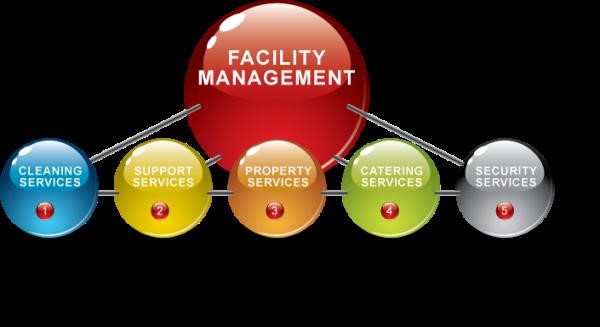What Is Facility Maintenance And How To Get A Job In This Vertical?
 What Is Facility Maintenance And How To Get A Job In This Vertical?
What Is Facility Maintenance And How To Get A Job In This Vertical?
Facility Maintenance (or FM) stands for activities that include keeping spaces, structures, and infrastructure in an adequate operating condition at all times. This is achieved via a routine, scheduled, or anticipated maintenance workflow to prevent future failure and/or degradation.
In other words, FM can be referred to as the process of prolonging the utility of a building by regular servicing of commercial appliances, capital assets, and the structural aspects of a building. However, the term facility maintenance need not be confused with Industrial Maintenance and Property Maintenance.
It makes sense to note that Facility maintenance is applied to commercial buildings where no manufacturing is involved. On the other hand, property maintenance is concerned with residential buildings, and industrial maintenance is applied to manufacturing plants.
On a quantitative level, FM looks after the well-being of capital assets, which include machinery, robotics, research equipment, and medical devices, other commercial appliances including boilers and HVAC units, along with areas that include parking lots, rooms, hallways, and garages.
Also Read – How Accountants Can Stay Productive in 2020?
Roles and Responsibilities –
There are mainly two types of facility maintenance (FM) workers, namely, the facility manager and the maintenance technician.
While the former is responsible for creating and testing fire safety systems, cleaning schedules for janitors, creating maintenance schedules for capital assets, and delegating job requests to technicians, the latter looks after conducting periodic building walkthroughs along with performing preventive maintenance and repairs on capital assets and HVAC units (as technicians generally possess an HVAC certification).
From a qualitative standpoint, Facility managers’ duties fall into one of the following two levels:
- Operational: Maintaining secure, restful, and workable environments for occupants to function through an elite level of skill and on-the-ground knowledge in their specific vertical.
- Strategic: Tactical roles involve making partnering clients and end-users understand the impact of building and asset decisions and how they might affect facility services, business risks, safety guidelines, and costs.
Moreover, there exist two major types of facilities management, Hard FM and Soft FM. All the services relating to the maintenance of actual structures and systems that make a facility work, including plumbing, fire safety, and/or elevator maintenance, fall under Hard FM. On the other hand, Soft FM covers services like cleaning, pest control, grounds maintenance, and security.
Check out what is facility maintenance and how to get a job in this vertical –
Career Options in Facility Maintenance –
With a wide range of service types, Facility Maintenance offers a plethora of ways to make a decent career. More often than not, mechanical maintenance technician job description would house “in-the-field” roles that can be entered with a good degree of technical training but relatively low educational requirements.
And then come the “bird’s eye” roles that involve coordinating and delegating efforts. These usually require a college degree and extra certifications, with brownie points for any extensive prior experience in the field. Let’s skim through the various categories that constitute facility maintenance and offer viable career prospects.
Environment, Health, and Safety (EHS) –
One of the more important disciplines of FM, EHS ensures the modeling and maintenance of an eco-friendly and sustainable workplace, thereby conjuring a safe and healthy atmosphere. This might include decreasing the carbon footprint of the facility and maintaining clean air quality.
In order to survive in this discipline, workers need to stay updated with the ever-changing local and federal safety regulations and align the facility with them at all times. Not only does this ensure what’s been stated, but it also saves the parent organization from unwanted lawsuits, public controversies, insurance claims, and fatal shutdowns.
Janitorial and Ground keeping Duties –
Maintaining the aesthetic value of a facility is as vital as can be imagined. Not only does it directly affect the value of the establishment, but it also boosts the morale of workers and visitors.
Cleanliness practices such as effective trash disposal and plumbing can be performed in-house, while more specialized roles can sometimes be outsourced to specific vendors. Senior management can coordinate such efforts to maximize cleaning time, prevent over-cleaning or under-cleaning, and regulate manpower.
Hardware Inspection and Maintenance –
It is the job of the maintenance squad to keep a really close watch on routine inspections and perform prompt repairs. This also involves interfacing with a vendor to make sure the work is done on time, be it monitoring smoke detectors, maintaining the entire elevator system, or repairing the air conditioning.
The core contribution of professionals in this discipline is to maximize the functional life of the equipment and reduce unwanted costs to the organization. Making sure that all the separate systems function properly on a regular basis can require in-depth knowledge of facilities management planning software as well.
Business Continuity –
It is paramount for profit-intensive firms to prevent loss of business hours, and planning of fail-safes ensures just that. Facility maintenance professionals that fall under this category tend to play a huge role in handling scenarios like loss of server access, migration to new systems, power outages, and dangerous emergencies like earthquakes that can severely hamper a business’ profitability.
Alleviating such unforeseen issues requires a fairly skilled and agile FM team working in tandem with other business units to formulate plans and train the staff subsequently. And since the efficiency of this maintenance wing directly affects cash flow, technicians and managers under this branch are expected to have technical certifications, education qualifications, prior experience, and presence of mind.
Space Management, Migration and Transportation –
Frequent change in space can result in a costly mess if not for meticulous planning and a helpful Computer Aided Facility Management (CAFM) software. Technicians and Managers employed in this discipline should be able to run staffing and space changes smoothly while preparing for all eventualities.
For punctual order fulfilments and execution of tasks, facility managers need to have a hand in planning and implementing transportation solutions. Between transporting equipment to its required location and moving vital staff around a facility, this is one of the more important FM disciplines.
Conclusion –
Traditionally, “Facilities” refer to physical establishments that have been built or installed for a specific purpose and work together to help organizations achieve their stated goals. It is only fitting that maintenance practices at these facilities stay top-notch for maximum output.
In conclusion, Facility Maintenance includes one-to-one replacement of components and, unlike Facility service requests, does not require professional engineering, permitting, or change in space use or space classification.
Also Read – Top 6 Reasons To Take Team Building Activities Like Breakout






